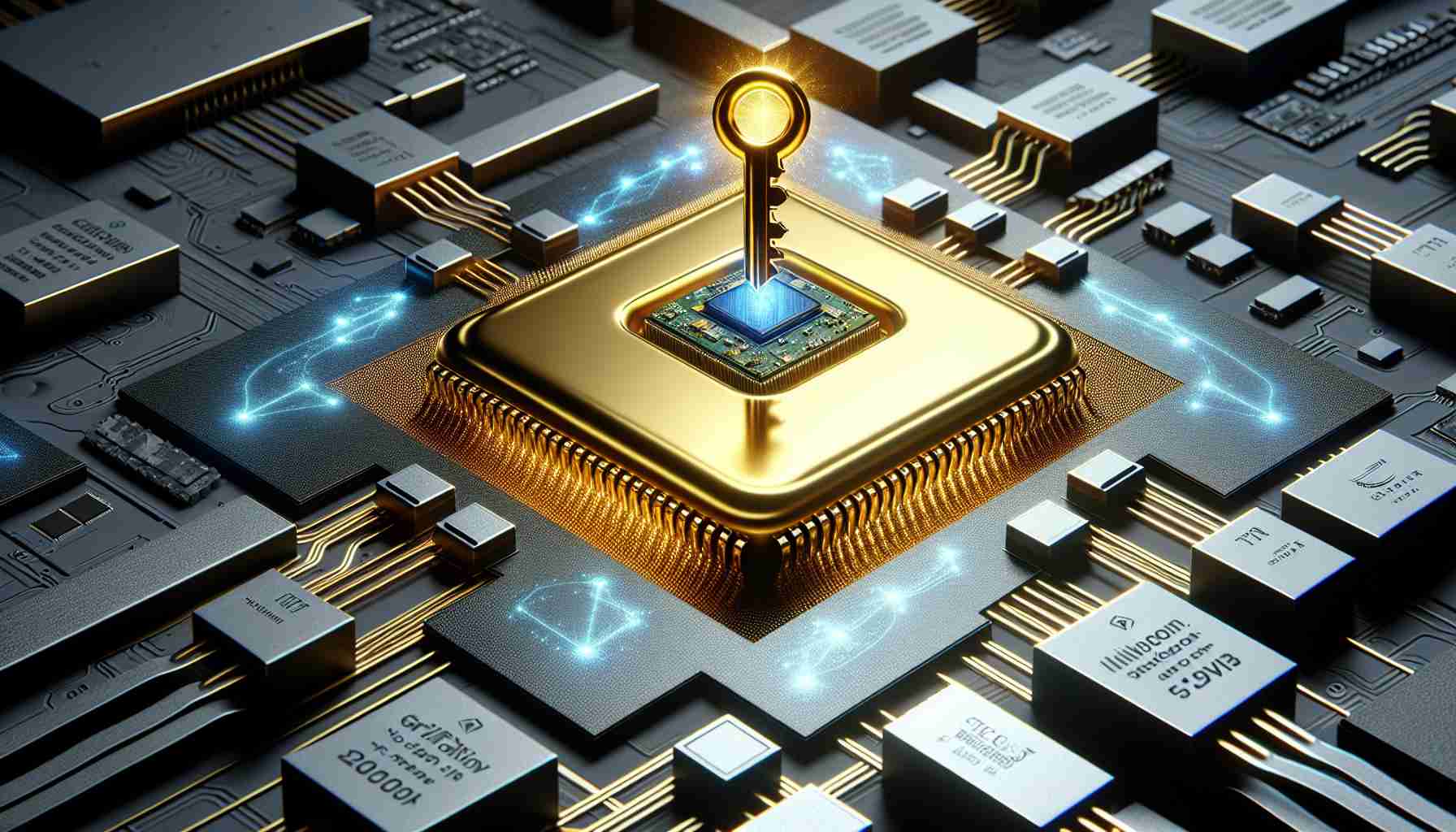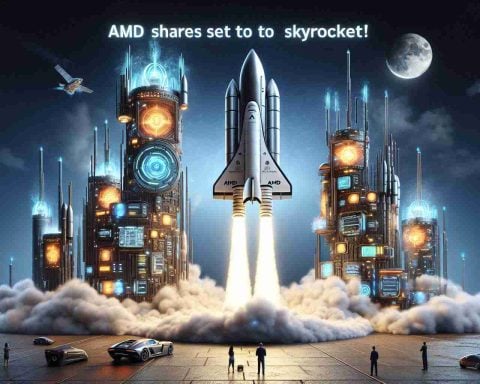- Nvidia is a leading force in AI chip innovation, commanding a 90% market share in GPUs crucial for AI infrastructure.
- Nvidia provides significant growth prospects for investors, despite minor demand risks due to robust backing by tech giants.
- TSMC plays a critical role in semiconductor production, supporting giants like Apple and Nvidia with cutting-edge manufacturing.
- TSMC’s strong client partnerships and strategic price hikes make it a solid investment option.
- The rising demand for AI-driven devices boosts Nvidia and TSMC, positioning them at the forefront of the semiconductor revolution.
The world of semiconductors is buzzing with innovation as AI sweeps across industries, sparking a transformation in the stock market. At the helm of this thrilling evolution are two titans: Nvidia and the Taiwan Semiconductor Manufacturing Company (TSMC). With their sights set on the future, these companies don’t just lead AI development—they offer lucrative investment prospects.
Nvidia: Master of AI Innovation
Nvidia’s meteoric rise in the AI chip landscape is indisputable. Starting from humble beginnings in gaming graphics, its visionary leap into AI via the CUDA software platform has established its dominance. Boasting a staggering 90% market share, Nvidia’s GPUs have become the backbone for large language model training, embedding the company deep into AI infrastructure growth.
– Infrastructure Powerhouse: Nvidia’s GPUs are the engine powering vital AI advancements.
– Commanding Control: Its significant market presence is a fortress against competitors.
– Investor Magnet: With enticing valuation metrics, Nvidia promises growth for savvy investors.
The potential challenge? A minor risk of demand dips lingers, but tech giants backing AI infrastructure anchor Nvidia’s position.
TSMC: The Foundation of Chip Manufacturing
TSMC stands as a linchpin in semiconductor production, crafting custom chips for tech behemoths like Apple and Nvidia. As a contract manufacturing powerhouse, its role in AI development is unshakeable.
– Cutting-Edge Advancements: Continually shrinking chip node sizes means faster, more efficient chips.
– Enduring Partnerships: Strong client alliances ensure a steady financial stream.
– Strategic Pricing: Planned price hikes signal TSMC’s robust market stance, making it a promising investment bet.
Market Trajectory and Opportunities
As AI-driven devices like smartphones and PCs soar in demand, Nvidia and TSMC’s ability to innovate positions them at the heart of the semiconductor revolution. For investors eyeing AI-powered growth, recognizing these giants’ unique strengths is key to riding the lucrative AI wave.
Explore more about these trailblazers by visiting Nvidia’s and TSMC’s main pages.
The AI Revolution: Nvidia and TSMC Shaping the Future of Semiconductors
How are Nvidia and TSMC positioned to lead the AI-driven semiconductor market?
Nvidia and TSMC are at the forefront of the semiconductor industry’s transformation, driven by AI’s increasing integration into various sectors. Their strategic innovations and market positions are key to understanding their leadership.
Nvidia: AI Innovation Leader
– Dominance in AI Chips: Nvidia has captured about 90% of the market for AI GPUs, crucial for training large language models, positioning itself as an unparalleled force in AI infrastructure.
– Expansion into AI Applications: Besides gaming, Nvidia’s extensive reach now spans from data centers to autonomous vehicles, enhancing its robust product portfolio.
– Strategic Partnerships: Collaborations with cloud giants like Amazon and Google cement Nvidia’s GPUs as indispensable in AI advancement.
TSMC: Cornerstone of Chip Manufacturing
– Pioneering Technological Advancements: TSMC consistently pushes the limits with innovations like 3nm chip technology, vital for AI applications requiring high performance and efficiency.
– Client Dependency: A key supplier for players like Apple, its client dependency ensures a steady stream of high-volume contracts.
– Adaptability to Market Needs: TSMC’s ability to adjust production capabilities to meet the rising demand for AI-specific chips fortifies its market presence.
For further insights, visit the main pages of Nvidia and TSMC.
What are the potential challenges and risks for Nvidia and TSMC in the AI semiconductor segment?
While both companies are well-positioned for growth, several challenges could impact their trajectories.
Nvidia’s Challenges:
– Fluctuating Demand: Although current trends favor Nvidia, shifts in AI demand or an economic downturn could affect sales.
– Competition: Emerging competitors attempting to chip away at Nvidia’s market share could pose threats despite its current dominance.
TSMC’s Challenges:
– Geopolitical Risks: As a Taiwanese company, TSMC faces geopolitical tensions, particularly concerning relations between Taiwan and China, posing potential operational risks.
– Supply Chain Constraints: Global semiconductor supply issues could hinder TSMC’s ability to meet demand or leverage price hikes.
What are the investment prospects for Nvidia and TSMC moving forward into the AI era?
Investors eyeing the AI-powered growth curve can find promising opportunities in both Nvidia and TSMC due to their strategic positions and foresight.
Nvidia’s Investment Appeal:
– Growth Potential: Its commanding presence in the AI market signals substantial future revenue streams, making it an attractive buy for long-term investors.
– Diverse Portfolio: Nvidia’s expansion beyond GPUs, into areas like AI software, provides multiple revenue channels, reducing investment risks associated with reliance on hardware alone.
TSMC’s Investment Appeal:
– Strategic Pricing: Upcoming price hikes demonstrate its ability to maintain a robust market stance, promising healthy profit margins.
– Technological Leadership: Continued innovation in chip technology not only ensures growth but also aligns with increasing demands from AI-focused clients, positioning TSMC as a pivotal player for tech investors.
Navigate the evolving market landscape by exploring the strategic pathways laid out by Nvidia and TSMC.




















